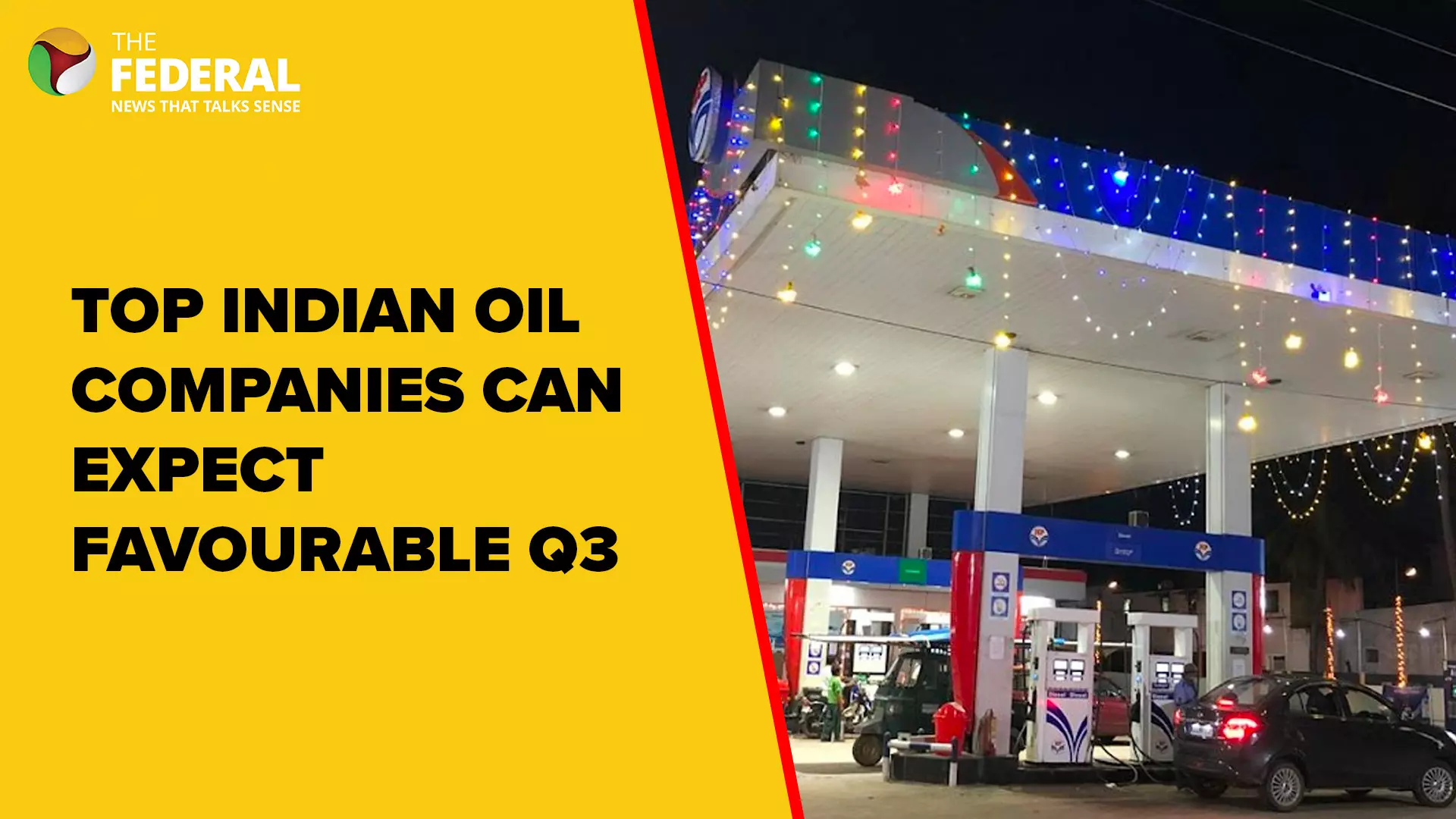
Top Indian oil companies can expect favourable Q3
A Prabhudas Lilladher report attributes the optimism to increased profit margins on petrol and diesel sales

Major Indian oil companies such as Indian Oil Corporation (IOCL), Bharat Petroleum Corporation (BPCL), and Hindustan Petroleum Corporation (HPCL) are expected to show impressive performance in the third quarter (Q3), according to a report by Prabhudas Lilladher. This is attributed to increased profit margins on petrol and diesel sales.
For this quarter, the Singapore Gross Refining Margin (GRM: shows how much profit a company can make from refining crude oil) is at $4.5 per barrel. In comparison, the profit margins for petrol and diesel stood at Rs 8.2 and Rs -0.6 per litre, respectively.
Historically, IOCL, BPCL, and HPCL have traded at long-term Price to Book Value (P/BV: compares the market price of a company's shares to its book value (essentially, what the company is worth on paper). A lower P/BV could mean the stock is undervalued (or a good deal)) of 1, 1.3, and 0.8 times, respectively, says the report.

